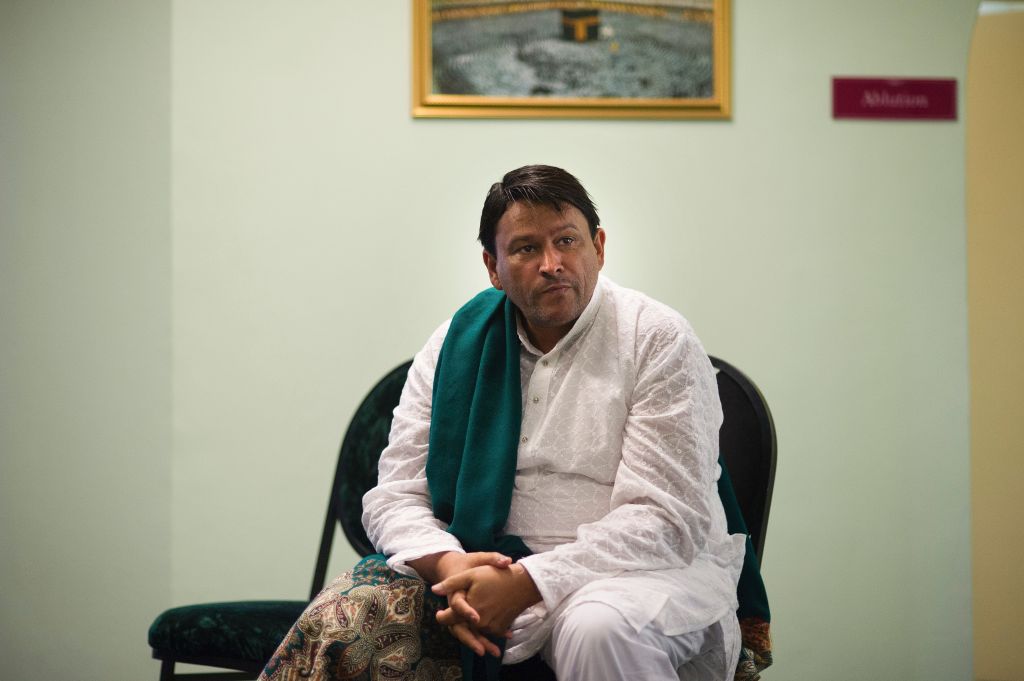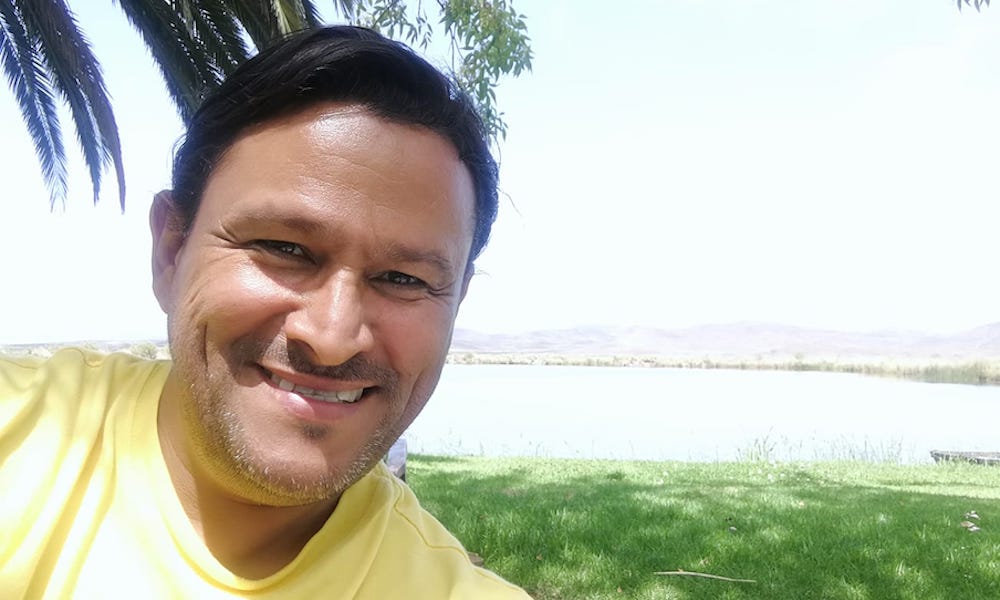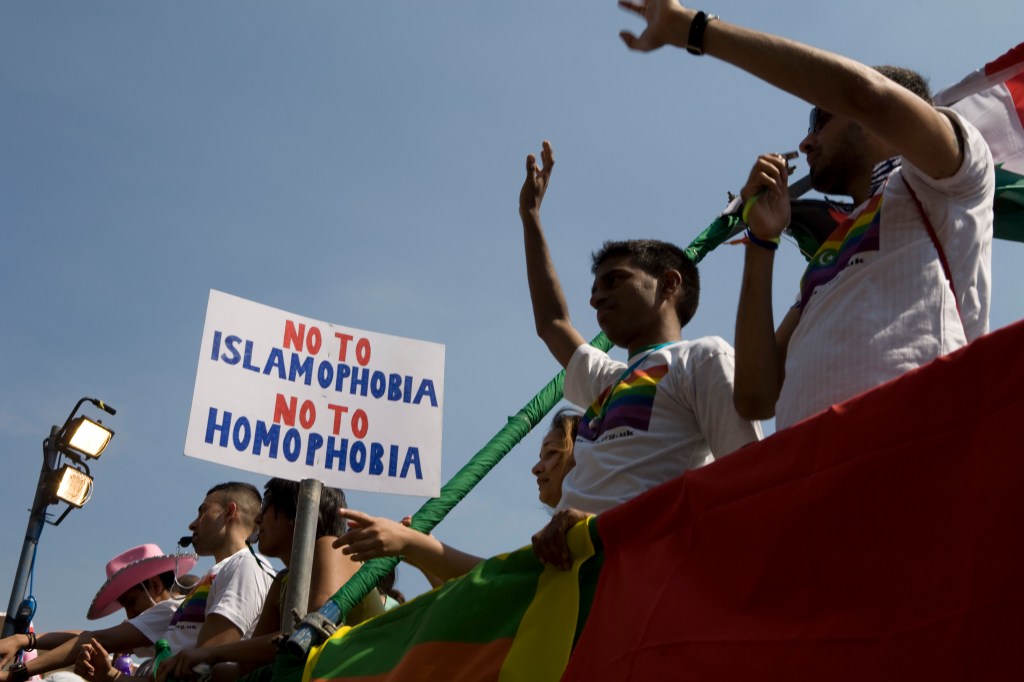Three weeks ago, Nathan Barrera-Bunch was working as a management analyst at the U.S. Department of Veterans Affairs in Washington, D.C., a job he took in November believing it would provide long-term stability. Now, just short of three months into his tenure, he is among the thousands of federal employees who have been abruptly terminated as part of President Donald Trump’sadministration’s sweeping workforce reductions.
Barrera-Bunch, 36, originally from the Texas border town of El Paso, was inspired to work for the VA after witnessing how his grandfather, a Vietnam War veteran, struggled with post-traumatic stress disorder. After working in the private sector, he was convinced by his fiancé — who also works in the federal government — that public service would offer greater stability. Instead, he was fired without warning or performance review, a move he describes as both devastating and dishonest.
Fired without explanation
“I was hired into an office specifically tasked with improving coordination within the VA, increasing efficiency, and, in many ways, working toward the very goals that President Trump and Elon Musk have publicly advocated for,” Barrera-Bunch told The Advocate.
Despite this, he said, his termination came via email at 7:24 p.m. February 13, a message that lacked any formal documentation or explanation beyond the claim that he had been dismissed for performance reasons — despite not receiving a single formal review.
“My boss had no idea who had been fired; she wasn’t notified. She said, ‘Hey, you need to check your email.’ And there it was — I was terminated,” he said. “I had been at the VA less than 90 days and hadn’t even had a formal review of any type.”
Barrera-Bunch is far from alone. Thousands of federal workers, many still in their probationary period, have been terminated under vague claims of poor performance. Those fired often never had their work flagged as inadequate.
During a February 6 congressional hearing, Tracey Therit, the VA’s chief human capital officer, defended the agency’s actions, saying that “removals are legally defensible” and that once a VA employee is removed for cause, they cannot rejoin the agency. She also testified that firing employees over performance isn’t anything new.
Barrera-Bunch said his frustration isn’t just directed at Trump or Musk but also at the higher-ups who had reassured workers about mass firings. “We were repeatedly asking if layoffs were coming because we were afraid,” he said. “But nearly everyone assured us, ‘Veterans are a bipartisan priority, so cuts here are unlikely.’ They promised it wouldn’t happen. Then it did.”
A supervisor’s confirmation and an email to the HR chief: ‘Why was I fired?’
In an email exchange with his former supervisor, Charlotte Boggess, Barrera-Bunch asked for confirmation that he had never received an evaluation or any meetings regarding “poor performance” before his termination. Boggess replied that his recollection was accurate and even offered to serve as a reference for future job opportunities.
Despite this, his termination paperwork suggests otherwise. His SF-50, a “Notification of Personnel Action” form reviewed by The Advocate, states that the nature of action is termination during the probationary period, and the legal authority is listed as separation for unsatisfactory performance or conduct during the probationary period.
Frustrated and searching for answers, Barrera-Bunch emailed Therit, who signed off on his termination. He had attended the hearing at which she testified.
“I hope this email finds you well. I would say it was nice to meet you on Tuesday, but it was not,” he wrote.
Barrera-Bunch explained to Therit the immediate, real-world consequences of his firing. “I tried to finish this email in the morning but couldn’t get it started because I was rushing between my doctor and the pharmacist to see if I could get them to refill a prescription for my HIV prevention medication or my anti-anxiety medication. ‘It’s too early before your next refill,’ the insurance said… even though they knew I was losing health insurance only three days before I’d be eligible for a refill.”
Barrera-Bunch also criticized the VA’s lack of transparency during a House Veterans Affairs Committee hearing that he says he attended in early February, where Therit evaded direct questions about the firings. “I was hoping for a modicum of understanding about who or what compelled you to lie to me in this email and say I was being terminated for poor performance,” he wrote. “I started at the VA 86 days before I was fired. I hadn’t even had a performance review. So why was I fired?”
He ended the email with a demand: “Please give me my corrected SF-50 so I can enter the next phase of DC’s Unemployment Office trying to deny me my benefits.”
The human toll of mass firings
Barrera-Bunch, who is gay, has lived in D.C. for more than a decade, but his ability to remain in the city is now uncertain. He and his fiancé split $2,000 in monthly rent for a basement apartment in Northwest D.C. While he and his partner presume that the partner’s job is safe, their financial security is threatened.
Nathan Barrera Bunch (left) with his partner at the White House
“This isn’t just some abstract political decision,” Barrera-Bunch said. “These are real jobs, real people. This is happening to your neighbors, your friends, and your family members.”
The consequences, he said, will ripple far beyond Washington. He said that the former VA employees will join the already unemployed and flood the job market, adding that they’ll be competing for positions that they may be overqualified for. In some instances, people will be forced to move, which will affect communities where these people live. It’ll also drain talent from the federal workforce and possibly discourage people from applying.
“It’s intentional. It’s not just about cutting costs — it’s about dismantling institutions that help people,” he added. “If this were just about efficiency, they wouldn’t have fired the people whose entire job was to improve the VA’s work.”
Barrera-Bunch also noted that many people are expressing glee over these firings — something he finds deeply troubling.
“A whole segment of people are celebrating these job losses,” he said. “But if a plant in the Midwest shut down and laid off 100,000 workers, I wouldn’t be cheering. I wouldn’t want that to happen to them.”
Support The Advocate’s journalism. Find out how you can contribute here.
Anger and a bit of schadenfreude
Although he feels for his colleagues and for the people who will be affected by these firings, Barrera-Bunch admits he is “not free from schadenfreude” when it comes to those who voted for Trump either out of MAGA loyalty or despite knowing the chaos he would bring.
“I don’t feel bad for people who knew exactly who Trump was and still voted for him,” he said. “Some people are only going to learn through suffering; unfortunately, we’re all suffering because of them. If you didn’t want to pay attention to what he did before, well, now you get to experience it firsthand.”
He is especially frustrated with progressives and independents who spent four years criticizing President Joe Biden but failed to act when it mattered.
“People like to play politics like it’s a TV show. But now they’ve lost the plot,” he said. “I have friends with PhDs who couldn’t even tell you the difference between the House and the Senate, but they spent all their time complaining about Democrats instead of doing anything useful.”
Unemployment benefits battle looms and D.C. officials respond
Barrera-Bunch will have to fight for unemployment benefits because the VA listed his termination as performance-related — a label that complicates claims. In D.C., as in most states, workers fired for cause are generally ineligible for unemployment benefits unless they can prove their firing was unjust. The process involves an appeal and potentially weeks or months of waiting, leaving former employees with no immediate financial support.
“They did this on purpose,” Barrera-Bunch said. “They fired thousands of probationary employees so they couldn’t get unemployment. Just say it outright: They are intentionally gutting the middle class of D.C.”
The widespread terminations have also caught the attention of local government officials, who say the economic impact on Washington, D.C., will be severe. A spokesperson for the D.C. Department of Employment Services directed The Advocate to a town hall event held by D.C. Mayor Muriel Bowser, a Democrat, and city officials, including Director of Employment Services Unique Morris-Hughes.
Bowser, addressing the impact of the federal job cuts, said the firings had caused “dramatic” financial consequences for the city, estimating a revenue shortfall of $325 million due to lost wages, reduced sales tax revenue, and overall economic decline.
Morris-Hughes, speaking about unemployment benefits, confirmed that some former federal workers have struggled to access benefits because their termination letters cite performance issues.
“There is language in some of these letters that cites performance as a reason for termination,” she said. “I have not received any additional guidance from the Department of Labor on whether we should be treating these claims differently than how we normally treat claims.”
She advised affected workers to submit as much documentation as possible when filing claims to prove they were not terminated for cause.
The political fallout and what comes next
As a career employee, Therit is not a political appointee. Yet she has played a key role in implementing the firings, signing off on termination notices that some supervisors reportedly say do not reflect reality. The Advocate reached out to Therit for comment, asking how a longtime civil servant could justify signing off on firings that appear to have been driven by political motives rather than legitimate performance concerns. The Advocate also asked whether she has considered resigning in light of the growing criticism surrounding the VA’s actions.
Therit did not respond to The Advocate’s request for comment.
The VA plans to eliminate 80,000 jobs as part of an “aggressive” reorganization to return staffing levels to 2019, the Associated Press reports. An internal memo obtained by AP outlines the plan to reduce the workforce and restructure the agency. The cuts come after the VA expanded significantly under the Biden administration to provide care for veterans impacted by burn pits under the 2022 PACT Act. The memo instructs VA officials to move forward “aggressively” while working with the White House’s Department of Government Efficiency to “resize and tailor the workforce” to align with the administration’s new priorities.
More than 25 percent of VA employees are veterans themselves, meaning many of those fired once relied on the very system they were working to improve, according to the AP. The cuts have drawn significant backlash, with Sen. Richard Blumenthal, the top Democrat on the Senate Veterans Affairs Committee, condemning them as a betrayal.
“Their plan prioritizes private sector profits over veterans’ care, balancing the budget on the backs of those who served. It’s a shameful betrayal, and veterans will pay the price for their unforgivable corruption, incompetence, and immorality,” Blumenthal told the AP.
Despite the uncertainty he now faces, Barrera-Bunch remains committed to fighting back — not just for himself but for others in similar situations.
“This isn’t just about me,” he said. “If they can do this to federal employees, they can do it to anyone. And people need to wake up before it happens to them.”






 Since 1975, TLC C
Since 1975, TLC C

